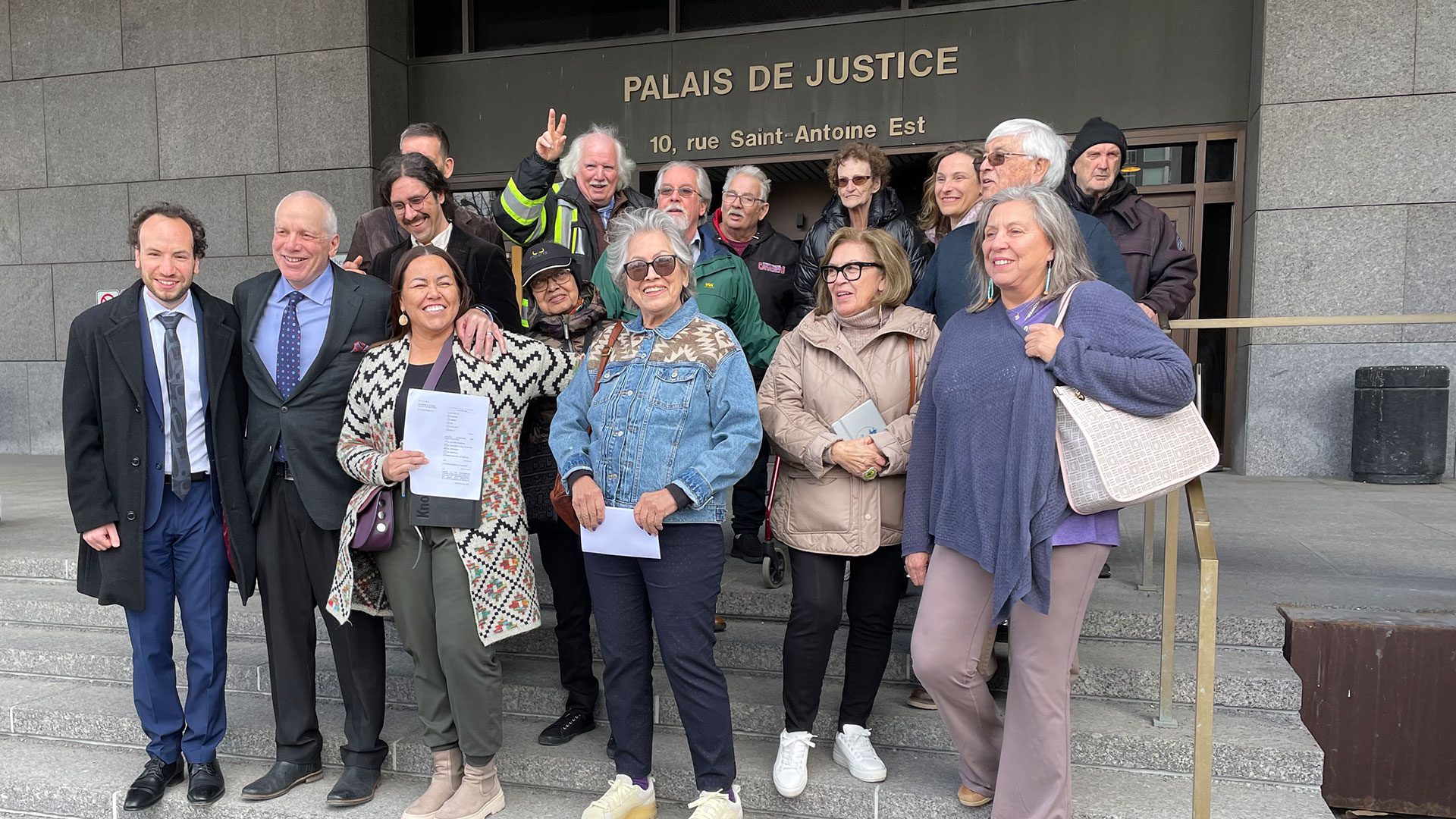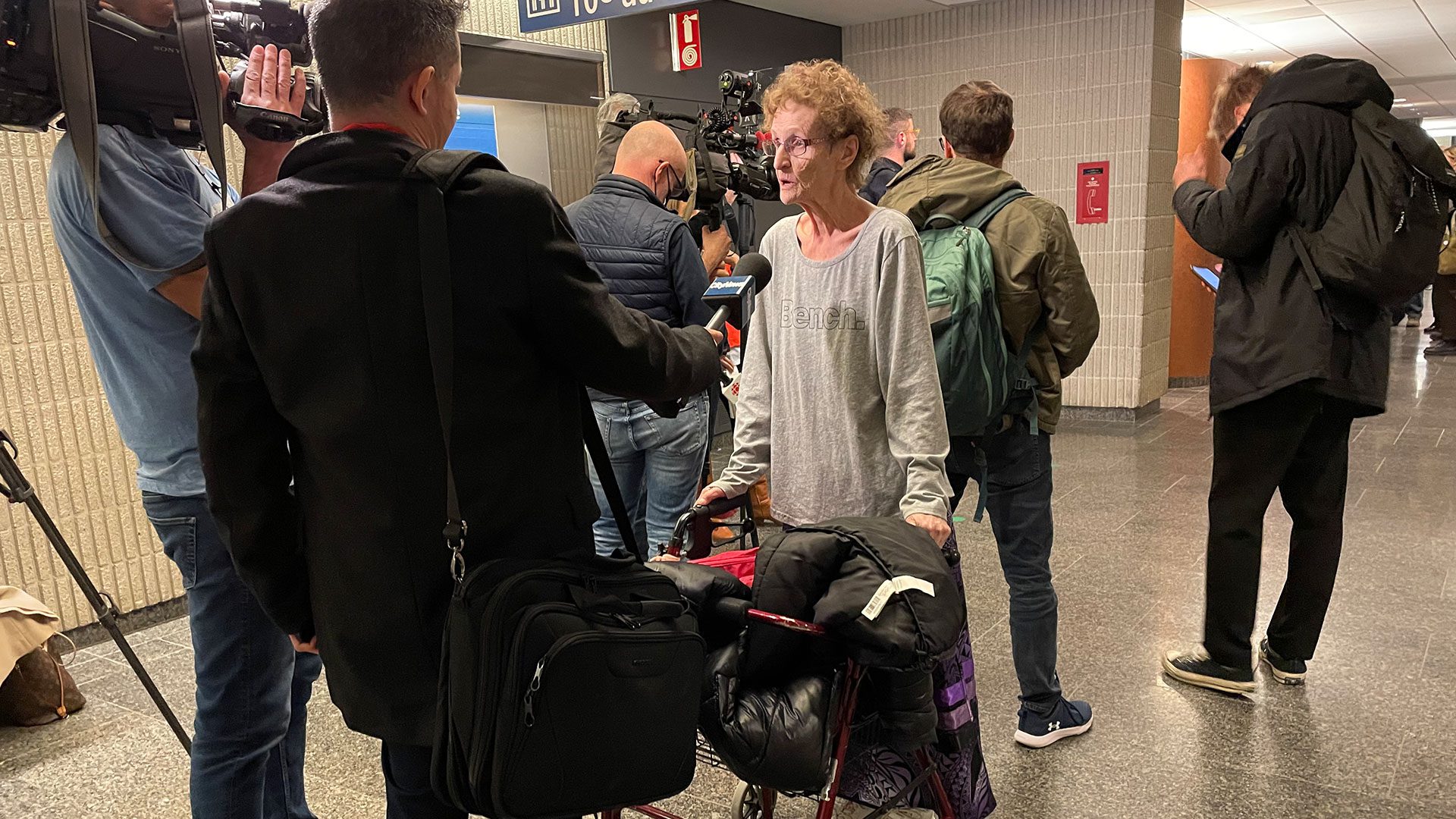This video is thanks to ricepaddydaddy!
A group of six women from Kahnawà:ke calling themselves the Mohawk Mothers, or Kanien’keha:ka Kahnistensera, reached an agreement with McGill University and Quebec’s infrastructure society (SQI) April 20 to find out if there are unmarked graves on the campus.
Kwetiio, one of the Kahnistensera, said the agreement is “for the archeology. It’s not for either side. It’s not for people fighting amongst each other, it’s not for the different entities, it’s just for the children, it’s just truth-telling.”
The Kahnistansera allege that there is a strong possibility that bodies of Indigenous children who they say were victims of botched psychiatric experiments are buried on the grounds of the Allan Memorial Institute (AMI), a former psychiatric hospital which is owned by McGill.
The agreement establishes how archeological mapping and digs will proceed on the surrounding site of the old Royal Victoria Hospital, which neighbours the AMI, and eventually allow McGill’s New Vic project to go forward.
A panel of expert archeologists selected by all parties will determine how digs will proceed, and Kanien’keha:ka cultural monitors will also be present on site during archeological works, and the agreement also compels the McGill University Health Centre and the federal government to expedite the release of records relating to the Allan Memorial experiments.
McGill has been attempting to go forward with the New Vic project, which would revamp the old Royal Victoria site – which neighbours the AMI where CIA- and Canadian-funded psychiatric experiments took place from 1957 to 1964.
Led by Dr. Ewen Cameron, patients were subjected to high doses of LSD and barbiturates, sleep deprivation, ‘psychic driving’, and electroshock therapy. Some of the people in the experiments, the Kahnistensera allege, never returned.
“We’re hoping that it can be as thorough as possible. I don’t think things can be rushed, and I’m just very, very interested in other people using this as an example to be able to find other places, because this is the first time in Canada that it’s been approached like this and it’s setting precedent,” said Kwetiio.

At the courthouse on April 20, family members of Cameron’s victims and Lana Ponting, one of the only remaining survivors of the experiments, showed up in support of the Kahnistansera.
At 82 years old, Ponting travelled from Winnipeg by herself to share her story at the hearing. She wore a purple ribbon skirt given to her by the Kahnistensera, whom she says she now considers her friends.
“People need to know the truth. and I do want the prime minister of Canada to do a public inquiry. It’s time,” said Ponting.
Hans Dybka, whose mother was under Cameron’s care at the Allan, has been looking for answers for decades. He listened as the agreement was ratified in the courtroom, and during the media scrum thanked the Kahnistensera for their efforts.
“We want to thank you for standing up for the truth,” said Dybka. “The Mohawk Mothers have to come to court, stand up against the attorney general, and all the government. The number of lawyers that were in court today, and you people stood up and spoke and asked for the simple truth. We are behind you.”
Ponting added, “Yes, we are behind you.”
‘A first in Canada’
The Kahnistansera aren’t affiliated with the band council but managed to exert their legal rights over the New Vic project as it sits on Kanien’keha:ka territory.
They also did so without lawyers and ensured their decision-making and statements came from the entire group.
They did, however, have Kimberly Murray, the special interlocutor on missing children and unmarked graves on their side.
Julian Falconer was one of Murray’s legal representatives who spoke at the agreement hearing.
“This is absolutely a first in Canada for setting a precedent for how Indigenous people can work with the oppressor,” said Falconer.
The agreement is the result of negotiations that began after Justice Gregory Moore granted an injunction to the Kanien’kehaka Kahnistensera last October which halted construction at the site of the old Royal Victoria Hospital.
“We, as people, not as an organization, we as people we hold inherent rights and that is what allowed us to keep going forward. If we’re representing an entity of Canada, it’s a conflict of interest,” said Kwetiio.
Paragraph 18 of their injunction application stated “The Government of Canada has funded the CIA’s MK-Ultra psychiatric experiments at McGill University; has organized the genocidal Residential School System which allegedly provided Indigenous children as guinea pigs for Dr. Ewen Cameron’s experiments.”
The Kahnistensera collaborated with academics over the past two years to compile a vast cache of documentation outlining medical experiments done on Indigenous people without their consent — a widespread practice over the course of the 20th century.
In a sworn affidavit submitted with the injunction application, Lana Ponting said she saw Indigenous patients of all ages at the AMI, and witnessed people digging what she assumed to be graves at night.
While evidence of unmarked graves on McGill grounds is circumstantial, it was enough for Special Interlocutor Murray to get involved.
Falconer said institutions are unlikely to corroborate allegations of unmarked graves prior to investigations.
“In each case, and the special interlocutor speaks to this, there is a discernable, sad, but understandable level of denialism,” said Falconer.
An ‘unprecedented collaboration’

In an email statement to APTN, the SQI said, in French, they were “very happy to announce the signature of this agreement that will permit to shine a light on the allegations of the presence of unmarked graves.”
McGill touted the agreement as an “unprecedented collaboration” between the parties.
However, it wasn’t smooth sailing.
The agreement was the result of six months of what the Kahnistensera called “difficult” negotiations – that went on right up until the agreement was approved by Judge Moore.
McGill and SQI actually filed a motion to lift the injunction back in February, but the parties managed to come to the terms of the agreement by Easter Weekend.
On the morning of April 20, the parties were ironing out the final details of the agreement at Montreal’s Superior Court.
Chief among them, whether or not it should be “homologated,” meaning it’s legally enforceable and publicly available.
But at the last minute, the SQI contested that point in court, saying that it was not the right time to do so. And McGill’s lawyer simultaneously claimed that the university did not take any issue with homologation, but took time to outline that he worried homologation would mean the agreement could be “weaponized” and undermine the “good faith” they had built over the course of the negotiations.
“Trust is a big issue with us. We came into here trying to renew a relationship and having that homologation,” said Kwetiio. “Having that is something that we can lean on to start this new relationship. That was important to us.”
Despite the final disputes, the agreement was positively received by all parties.
“What is leading the way, and what the special interlocutor has insisted upon from day one, are best practices for respecting Indigenous protocols, cultural priorities, and teachings,” said Falconer. “Best practices will determine how to respectfully honour the child remains if they are there, and best practices will make the call, not best investments.”
https://www.aptnnews.ca/national-news/mohawk-mothers-reach-agreement-with-mcgill-to-search-hospital-grounds-for-unmarked-grave/
No comments:
Post a Comment